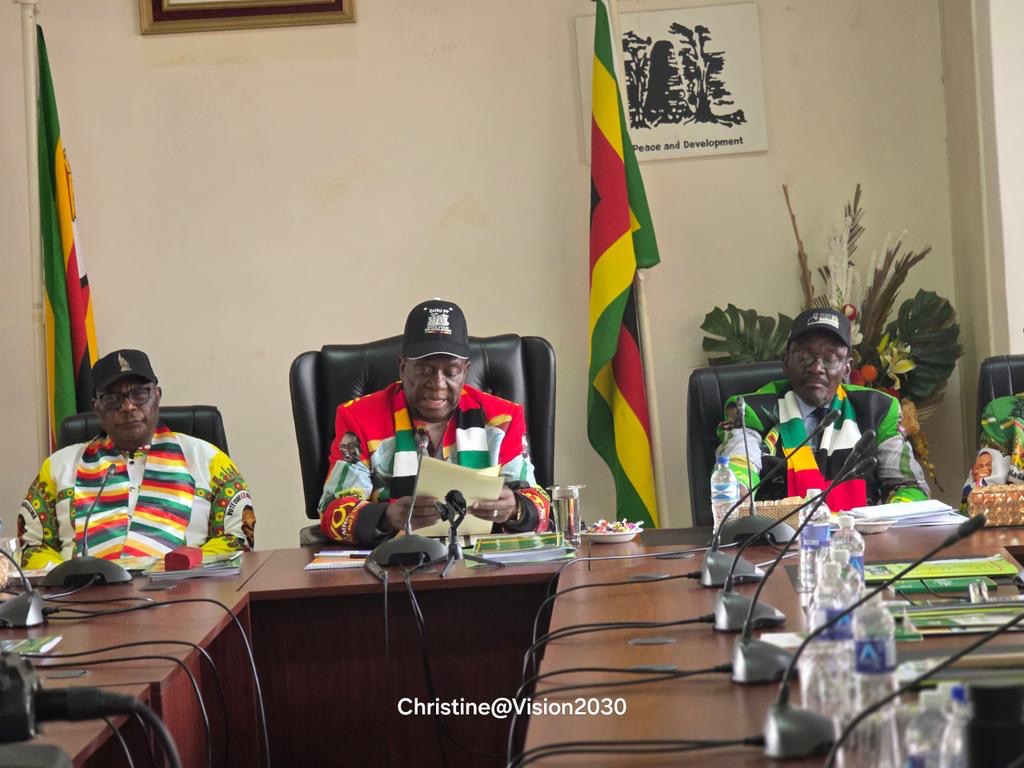By Staff Reporter
Harare – President Emmerson Mnangagwa hosted a crucial meeting on Monday with creditors and financial executives to discuss a bold plan to clear the nation’s $12.7 billion external debt.
This significant step aims to pave the way for the country’s re-entry into international capital markets after more than two decades of isolation.
The Southern African nation’s debt burden, equivalent to 81% of its Gross Domestic Product (GDP), has been a persistent challenge.
Repeated economic crises, including hyperinflation and failed currency reforms, have hindered Zimbabwe’s progress.
Mnangagwa announced that Zimbabwe is actively negotiating a Staff Monitored Program (SMP) with the International Monetary Fund (IMF).
African Development Bank (AfDB) President Akinwumi Adesina emphasized the importance of this program as a prerequisite for necessary policy reforms.
“That is the key,” he said, adding that AfDB stood ready to offer financial support to cushion Zimbabwe’s economy against potential adverse effects of reforms.
Adesina said the AfDB also had money available from a special fund to help settle Zimbabwe’s arrears.
He did not provide any figures.
Finance Minister, Mthuli Ncube, indicated that a clearer timeline for debt clearance would emerge by mid-2025, contingent on securing bridge financing commitments from lenders.
Analysts stress the urgency of addressing the arrears issue, which has severely limited Zimbabwe’s access to international financial institutions.
Prosper Chitambara, a Harare-based economist, noted, “The issue of arrears is a major albatross around our neck.”
“Once the arrears are cleared it will be cheaper to borrow and easier to attract investment,” added Chitambara.
To unlock critical funding, Zimbabwe must make significant progress with bilateral creditors and clear arrears with the AfDB, World Bank, and European Investment Bank.
This is particularly crucial for a nation that once thrived as a regional breadbasket but now struggles to feed its own population.
Due to its unsustainable debt and arrears, Zimbabwe is currently ineligible for IMF financial support.
The targeted SMP, while not providing direct funding or requiring IMF board approval, would signal the country’s commitment to sound economic policies.
The United Nations estimates that 24 of Africa’s 35 low-income countries face a high risk of debt distress.
While Zambia, Chad, and Ghana have successfully completed or are nearing completion of debt restructurings, Zimbabwe’s situation is unique.
A significant portion of its debt burden, around 45%, comprises outstanding debt and accrued penalties.
To navigate this complex debt landscape, Zimbabwe has engaged the services of the Global Sovereign Advisory Company and law firm Kepler-Karst, funded by the AfDB’s Africa Legal Support facility.
While the government has been making token payments to bilateral creditors, the specific details remain undisclosed.



